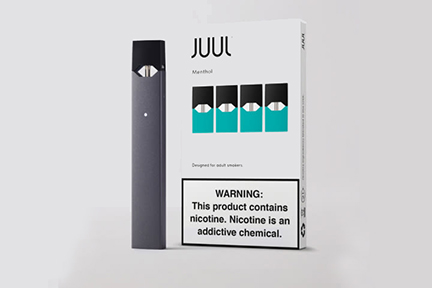Today (July 17), the U.S. Food and Drug Administration (FDA) issued marketing granted orders (MGOs) for Juul Labs’ original e-cigarette device and refill cartridges in tobacco and menthol flavors.
As part of its 2020 application, Juul submitted over 110 scientific studies to FDA covering nonclinical, clinical, and behavioral science. Following rigorous evaluation of the data, FDA decided that an MGO for the Juul System was “appropriate for the protection of public health” – the standard required by statute for authorization.
“Today’s FDA authorization of Juul products marks an important step toward making the cigarette obsolete,” company CEO K.C. Crosthwaite said in a statement. “More than 2 million adult Americans have switched completelyaway from deadly cigarettes using Juul products. Meanwhile, underage use of our products is down 98% since 2019, to one-half of one percent of youth.
“We strongly support FDA’s role in regulating tobacco and nicotine products. Americans who use nicotine deserve an orderly, reliable market in which they can confidently choose from a wide array of smokefree nicotine products that are high-quality, innovative, backed by rigorous research, made in FDA-inspected manufacturing facilities, and marketed and sold responsibly.”
The approval marks a major reversal after the FDA banned Juul’s products in 2022, citing concerns over public health. That decision was quickly stayed following an appeal by the company and formally rescinded in June 2024. During this time, Juul products remained on the market.
“The decision follows wider expectations in the industry that the Trump Administration would ease regulatory hurdles for launching new vapes and other smoking alternatives,” Emma Rumney wrote for Reuters. “Some companies have seen FDA applications for new nicotine products languish for years or, like Juul, faced rejections that were challenged in court.”
The approval breathes new life into Juul, which had faced regulatory roadblocks and financial turmoil after the initial ban. It also potentially signals a broader shift in FDA oversight, as the agency faces growing pressure over delays in product reviews and the proliferation of unauthorized nicotine products in the market. Juul’s authorization is seen as a potential bellwether for other pending applications in the vaping industry, the WSJ suggested.




